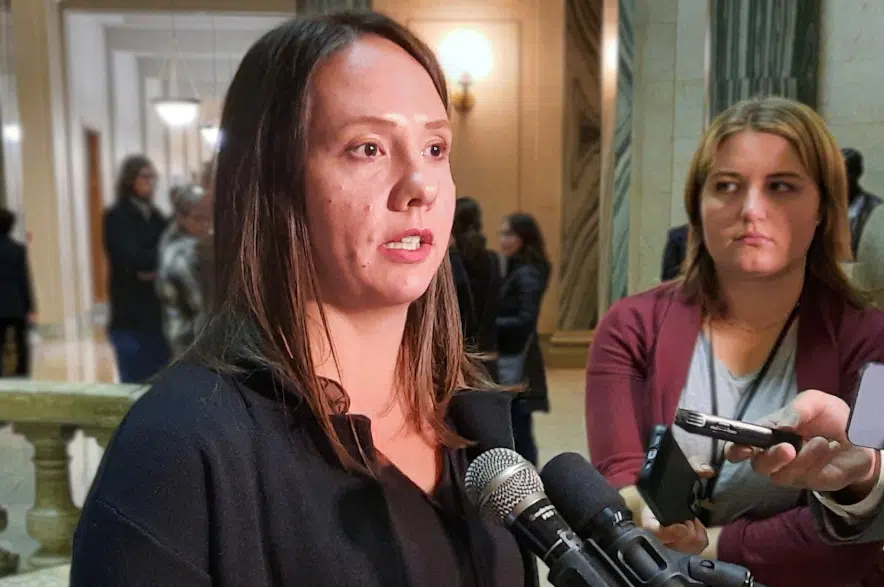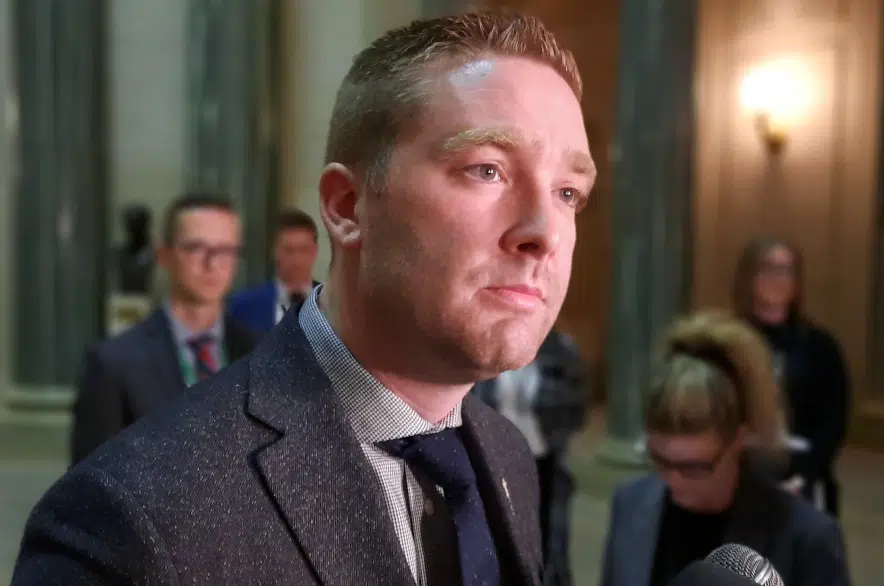On Friday morning, the Saskatchewan Teachers’ Federation (STF) is expected to release what job action could look like if contract talks with the provincial government continue to go nowhere.
Last week, STF president Samantha Becotte announced bargaining had come to an impasse, the union would be asking for conciliation, and it would hold a vote this week on sanctions ranging from rotating withdrawal of extracurricular services to a full, province-wide teachers strike.
The results of the vote are expected to be released Friday.
On Wednesday, Becotte said teachers don’t want to strike but it will be up to government to avoid that.
“We need to start to see the government come to the table willing to find solutions to address class size and class complexity. Teachers do not want to see disruptions but teachers also can’t continue down this path because we just know that it is now what is best for kids,” said Becotte.
Teachers went to the bargaining table with 10 things to discuss with the government. But, according to Becotte, the government will not engage with nine of those 10.
“Some of them (are) trying to address the significant issues that we have in our schools, specifically class size and complexity, the violence in the classrooms and trying to have meaningful action towards truth and reconciliation,” she explained.
Becotte said the government has been misleading the province about the realities in schools.
“They talk about education is the largest the budget has ever been. Well, of course it is; everything costs more than it ever has. We need to start to see a repair to the education funding to get us back to when we were No. 1 in the country,” said Becotte.
Though he understands it’s an issue, Education Minister Jeremy Cockrill isn’t interested in negotiating things like class size and complexity with teachers’ contracts. He said challenges like that are best dealt with by the school divisions.
“We’ve got 27 locally elected school divisions that, I think, know their communities better than almost anybody. They understand dynamics within a specific school and staffing in their sets of schools. My hope is that we can continue to work with school divisions on class size and complexity,” said Cockrill.
The government’s opening offer was a seven per cent increase to teacher salaries over three years, and while there have been nine bargaining meetings, Becotte said the government hasn’t moved from that position.
Cockrill said the teachers’ bargaining unit had also presented its opening offer but hadn’t given a formal counteroffer to the government’s proposal.
The minister said the government’s bargaining committee had felt progress was being made on a number of the smaller issues before an impasse was declared.
“But that takes time. That takes time across the table to understand positions and come to a better spot,” said Cockrill.
“At the bargaining table, that’s really where the best deals are made and agreed to, so that’s where we’d like to get back to.”
Cockrill said he wants a deal that’s fair for teachers but is also reasonable for the people of the province. When it comes to possible work-to-rule action, he said the province has seen how important it is for kids to be in classrooms and to have extracurricular activities.
“Those are important parts of a child’s education as they grow and develop, so certainly we would hope that those services would be continued while we have those bargaining discussions ongoing,” he said.
Back-to-work legislation isn’t something the government has considered, according to Cockrill.
Billboards
In the summer, the government put up billboards across the province titled “a fair deal for teachers.”
It states the government’s opening offer to teachers, a seven per cent increase over three years, and claims the average teacher’s salary in Saskatchewan is $92,000, which it said would be over the national average.
The STF called it a misleading campaign.
The costs for the billboards haven’t been finalized, but thus far it’s totalled $145,821.21.
A response from then-Education Minister Dustin Duncan pointed out that the government funds its bargaining committee, including for public notification and information around bargaining, and that it communicates with those it’s responsible to, just like the STF does.












